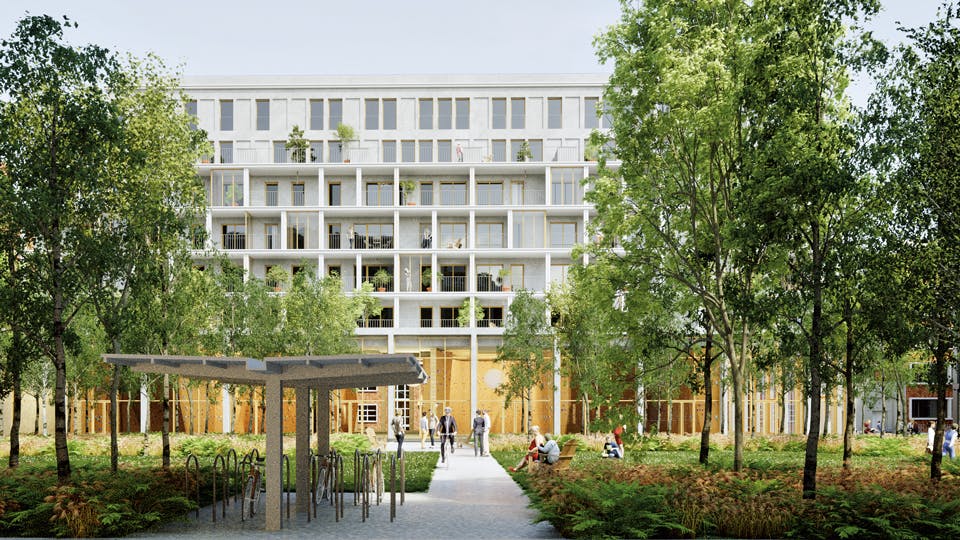ATTENTIVE TO NEW HABITS
The health crisis has had a profound impact on the relationship with the workplace. To expand the availability of third places, the Group has launched a call for architectural tenders to transform some of its industrial buildings. Fitted out for events and corporate coworking, they will be marketed under the Urban Station brand, like the 34,000 m2 of VAL Bienvenüe, a corporate coworking space designed by RATP Real Estate, with 2,200 workstations for RATP staff who were previously spread out over different sites.
Faced with the explosion of e‑commerce flows, the Group is redeveloping its bus depots, also located in the heart of the city.
Unoccupied during the day, they are used to facilitate the transfer of goods from heavy vehicles to lighter, cleaner vehicles, to cover the last mile to the end customer. Following a successful initial public tender in 2020, four new sites with a surface area of 4,800 m2 were offered to logistics operators in 2021.



